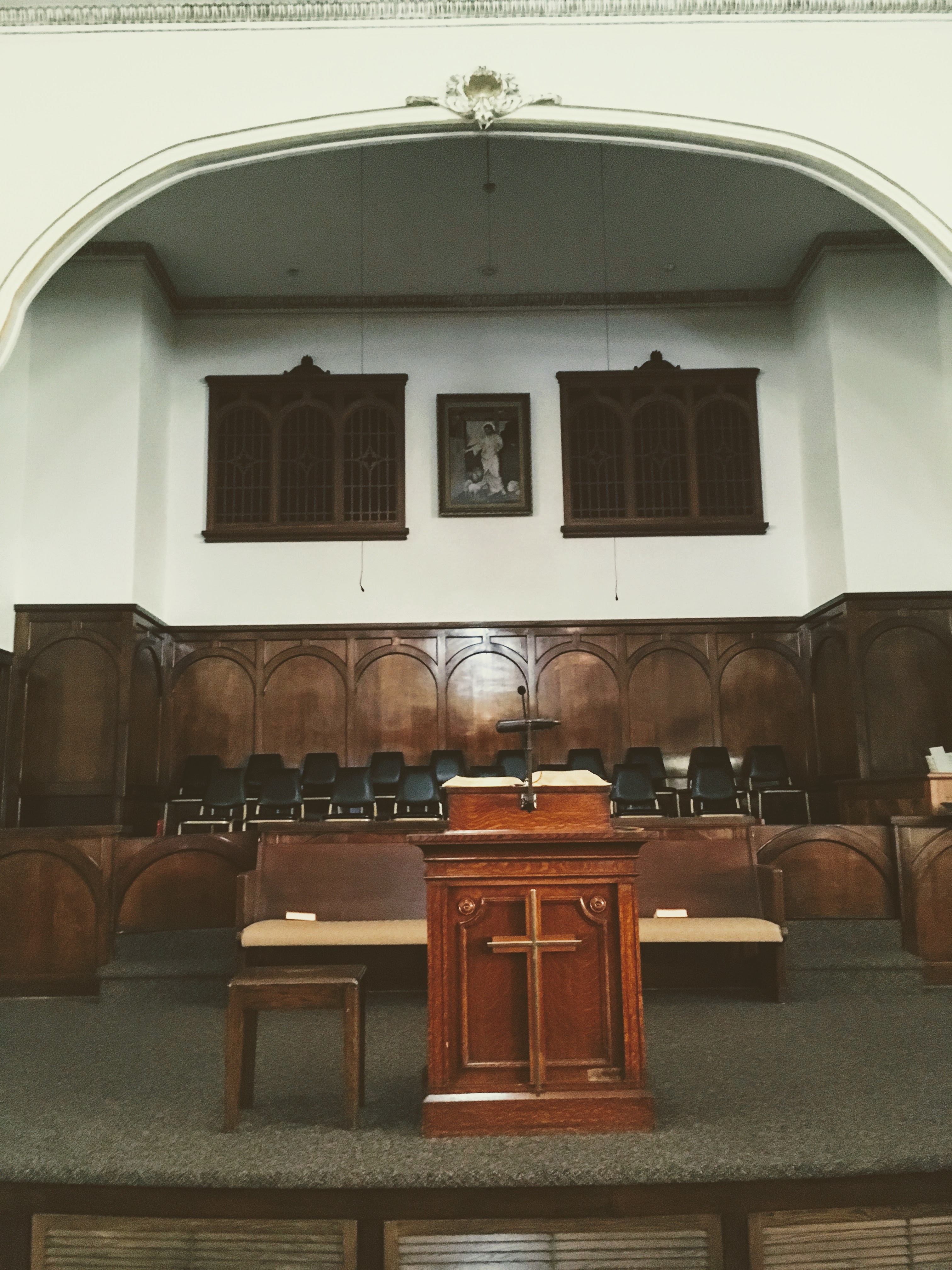June 14, 2020
- Message: Using Money Wisely and Well
- Scripture: Matthew 25:14–30
- Music: Rosemary
- Flowers: Leigh Ann Dawley
Good morning! It’s good to have you join us.
Thank you, for the music, Rosemary. Thank you, Leigh Ann Dawley, for the flowers.
If you have announcement or prayer requests, please feel free to add them as comments on the Facebook page.
Announcements
- We are live streaming on Facebook and not gathering at the church for worship, at least through the month of June. We are starting to talk about reopening, and an email went out about that this week.
- During the live streaming, we do have room for a few people to come and serve as a kind of facing bench. If you would like to be among a handful of people who worship with us in person, be sure and let the office know. Call or email the church office, and we’ll put your name in the hat.
- Also, please feel free to share our worship with your Facebook friends by posting a link on your page.
- Among church activities this week
- The 205 Sunday School class is gathering on Zoom this afternoon.
- The Transition Team will meet on Monday morning at 9:30.
- Ministry and Counsel at 4:00 p.m. on Tuesday
- The Finance Committee at 1:30 on Thursday
- Monthly Meeting for worship with a concern for business will be held via Zoom at 1:00 p.m. on Sunday, June 21. Please remember to give some attention to the proposed restructuring of committees and contact Doug Chambers with questions and comments.
- A memorial service for Valerie Guilliams will be on Tuesday, June 23, at 10:00 a.m., at Resthaven. The family is inviting people to gather for lunch and visiting afterward. See details in This Week.
Prayer concerns
- Dan Schuster’s blood pressure is still going in the right direction (down), and his stress test this past week revealed no problems.
- Greg Newby began chemotherapy this past week, and that will continue every three weeks through September. Greg reported a long day.
- Gordon Smith has been moved to Avita Senior Living at Rolling Hills, Family Health and Rehabilitation, 629 S. Maize Ct., Wichita, KS 67209. No visitors are allowed, but he does have his cell phone as well as a window to help with communication.
Prayer
God, giver of all good gifts, we turn to you.
Message
This morning’s message is the third in a series on the Quaker testimony of stewardship.
That testimony calls us to use God’s gifts wisely and well.
As the American Friends Service Committee puts it (https://www.afsc.org/testimonies/stewardship):
To Friends, good stewardship means taking care of what has been given, not just for ourselves, but for the people around us and for future generations as well.
I have talked about the earth as one of God’s gifts to us – stewardship of the earth. Last week I talked about time as one of God’s gifts – stewardship of time. This morning I’m talking about money. You knew it was coming, didn’t you? 😊
Probably, if you’ve heard a stewardship sermon before, it is likely to have involved some urging or encouragement to give money to the church. I will talk about that some, but that’s not all of what the stewardship of money is about.
As part of the testimony of stewardship, we are called to use our money wisely and well.
Related to the testimony of simplicity, we are called to recognize that our relationship with money can detract from our relationship with God. If the focus of our life is money (making it, keeping it, getting more of it), the focus of our life is not on loving God and loving our neighbors as ourselves.
In line with the testimony of integrity, we are called to engage with money in ways that are consistent with our faith and our values.
OK. Tithing. (You probably knew that was coming, too.) A tithe is one tenth of something. The idea of tithing, setting aside one tenth for God, is set out in the Hebrew scriptures, the Old Testament, part of the vision for the life of the children of Israel after they got settled.
Here’s a passage from Deuteronomy 14, beginning with verse 22, from The Message:
22-26 Make an offering of ten percent, a tithe, of all the produce which grows in your fields year after year. Bring this into the Presence of God, your God, at the place [God] designates for worship and there eat the tithe from your grain, wine, and oil and the firstborn from your herds and flocks. In this way you will learn to live in deep reverence before God, your God, as long as you live. But if the place God, your God, designates for worship is too far away and you can’t carry your tithe that far, God, your God, will still bless you: exchange your tithe for money and take the money to the place God, your God, has chosen to be worshiped. Use the money to buy anything you want: cattle, sheep, wine, or beer—anything that looks good to you. You and your family can then feast in the Presence of God, your God, and have a good time.
27 Meanwhile, don’t forget to take good care of the Levites who live in your towns; they won’t get any property or inheritance of their own as you will.
28-29 At the end of every third year, gather the tithe from all your produce of that year and put it aside in storage. Keep it in reserve for the Levite who won’t get any property or inheritance as you will, and for the foreigner, the orphan, and the widow who live in your neighborhood. That way they’ll have plenty to eat and God, your God, will bless you in all your work.
Clearly, this passage has in mind an agricultural economy. When the people worked, they were going to produce grain, wine, oil, and animals. Of those fruits of their labor, the people were to set aside ten percent.
Here, Deuteronomy points to the central reason for setting aside ten percent: “In this way you will learn to live in deep reverence before God, your God, as long as you live” (Dt. 14:23, MSG). That’s the integrity piece, right? If living with God as central to your life is important to you, then regular giving is an expression of that value.
Beyond that central idea that tithing is a part of living in reverence to God, Deuteronomy mentions three things that the tithe was to be used for: a celebration; support of the Levites; and provision “for the foreigner, the orphan, and the widow who live in your neighborhood.”
Did you catch the celebration part? Deuteronomy here says the people were to take the tithe to the place of worship and have a feast. Cool!
The tithe was also to be used for the support of the Levites. Numbers 18 specifies that a tenth of the tithe was to go to the Levites, the descendants of Jacob’s son Levi. They’re the ones designated as responsible for serving in the worship space, and in the vision for settled life for the children of Israel, the Levites wouldn’t get any land, so they wouldn’t have a source of income. Giving part of the tithe to the Levites paid for their service and made sure they were supported.
And then the third thing – tithing was to provide for the needy people in town, people who for a variety of reasons weren’t able to provide for themselves.
The idea, then, is that instead of using all the profits for our own needs and the needs of our business, some is set aside for celebration, for support of ministry, and for taking care of people with needs.
One of the articles I read on tithing puts is this way:
The Bible tells us that tithing is a way to show that we trust God with our lives and our finances. But the tithe wasn’t put in place for God’s benefit…. Instead, tithing is meant for our benefit because sacrificing a portion of our income helps us look outside our selfishness and makes us more aware of the needs of others. …
Tithing is an act of faith that helps us keep our priorities straight. It reminds us that we don’t own anything in this life. … we’re only managers of what [God has] given us. (https://www.daveramsey.com/blog/daves-advice-on-tithing-and-giving#:~:text=According%20to%20Leviticus%2027%3A30,these%20verses%20are%20essentially%20saying)
By giving a set amount regularly, we turn our attention away from ourselves toward others, toward using well what God has given us.
Are Christians required to tithe? Not really. As another article on tithing puts it,
… in the New Testament you don’t hear a whole lot about tithing, not because believers are not expected to give, they’re just expected to be a lot more generous because of the fullness of the work of Jesus that we celebrate. ***
A tithe is really an Old Testament term. … Nowadays we generally use it as just a way of saying give 10% of your income to the church. There’s nothing in the New Testament, in the sort of new covenant understanding of what it means to be God’s people, that encourages us to think that we’re required to give 10% of our income to the church.
In many ways the standards of the New Testament are a lot stricter … or a lot loftier…. So we’re required to give generously, to give sacrificially, to see [to] the relief of the poor, the support of the ministry, the spread of the gospel through all nations. … There may be some people for whom giving 10% is unwise. There are probably many people in [the United States] for whom giving 10% would be actually pretty easy, and in fact it wouldn’t really be sacrificial or generous.
So, yes, giving is a good thing. Tithing is one way of thinking about giving, but it’s not the end of the story. And giving isn’t all there is to say about stewardship and money.
As part of the testimony of stewardship, we are called to use our money wisely and well.
You know the parable of the talents, right? Here’s Matthew’s version of it, from The Message (Mt. 25:14ff):
14-18 “[The kingdom of heaven is] … like a man going off on an extended trip. He called his servants together and delegated responsibilities. To one he gave five thousand dollars, to another two thousand, to a third one thousand, depending on their abilities. Then he left. Right off, the first servant went to work and doubled his master’s investment.
The second did the same. But the man with the single thousand dug a hole and carefully buried his master’s money.
19-21 “After a long absence, the master of those three servants came back and settled up with them. The one given five thousand dollars showed him how he had doubled his investment. His master commended him: ‘Good work! You did your job well. From now on be my partner.’
22-23 “The servant with the two thousand showed how he also had doubled his master’s investment. His master commended him: ‘Good work! You did your job well. From now on be my partner.’
24-25 “The servant given one thousand said, ‘Master, I know you have high standards and hate careless ways, that you demand the best and make no allowances for error. I was afraid I might disappoint you, so I found a good hiding place and secured your money. Here it is, safe and sound down to the last cent.’
26-27 “The master was furious. ‘That’s a terrible way to live! It’s criminal to live cautiously like that! If you knew I was after the best, why did you do less than the least? The least you could have done would have been to invest the sum with the bankers, where at least I would have gotten a little interest.
28-30 “‘Take the thousand and give it to the one who risked the most. And get rid of this “play-it-safe” who won’t go out on a limb.
What lessons might we learn from this story?
Well, I think it might be a mistake to take it literally, as a kind of endorsement of capitalism, saying the goal in life is making the most money possible. Just sayin’. 😊
If that’s not it, what are we to learn?
One thing is that we all start off in different places. Just as we all have different bodies, so we all have different skills and abilities, talents.
Another thing is that, whatever our skill set, God will ask us what we did with what we had. Accountability.
We are all called to use God’s gifts wisely and well.
- As families what does wise use of money mean? It probably means not getting into too much dept, preparing for retirement, living simply, paying attention to the needs around us….
- As a church using God’s gifts wisely and well relates to thinking about how we use money as we look to the future. What is wise use of money for us as a congregation?
- Does it mean using thousands of dollars a year to maintain a building that doesn’t suit our needs?
- How can we improve in our use of money as a congregation?
- How can we nurture wise use of money among our families?
I will close this morning by reading a couple of selections from Britain Yearly Meeting’s Quaker Faith and Practice, from the section on “Living Faithfully Today” (20:54ff, https://qfp.quaker.org.uk/chapter/20/).
From its earliest days our Society has laid great stress on honesty and the payment in full of debts justly incurred. … Since we believe that all people are the children of God, we cannot take advantage of others by any form of dishonesty, whether in buying or selling goods, in business or privately, or as employees by failing to give an honest return in labour for the pay we receive. When we have received goods or services, we shall be punctual in making payment of the price agreed on, and we shall not attempt to evade our proper obligations to the community by way of taxation.
The guiding principle which Friends should keep in mind in making an income, whether by work or by investment, should be the good of others and of the community at large, and not simply of themselves or their own family. Friends should, even at the risk of loss, strive to be strictly honest and truthful in their dealings; should refuse to manufacture or deal in commodities that are hurtful, and should be vigilant against obtaining an undue profit at the cost of the community.
If Friends are investing, thought should be given, not only to security and the rate of interest, but to the conditions under which the income is produced and the effect which the investment may have on the welfare of all, through social or environmental impact, at home or elsewhere. In spending income, Friends should consider how their actions affect society and whether such expenditure upon themselves and their family is to the advantage of the community as a whole. Friends should also consider whether there is a reasonable relation between the labour expended on producing the things they buy and the real satisfaction yielded by their use.
We are meeting in person and also streaming our sermons on Facebook at 10:00 AM CST. Watch live:
https://www.facebook.com/universityfriendschurch/
Not on Facebook? You can see all of our posts and videos on our site here!



